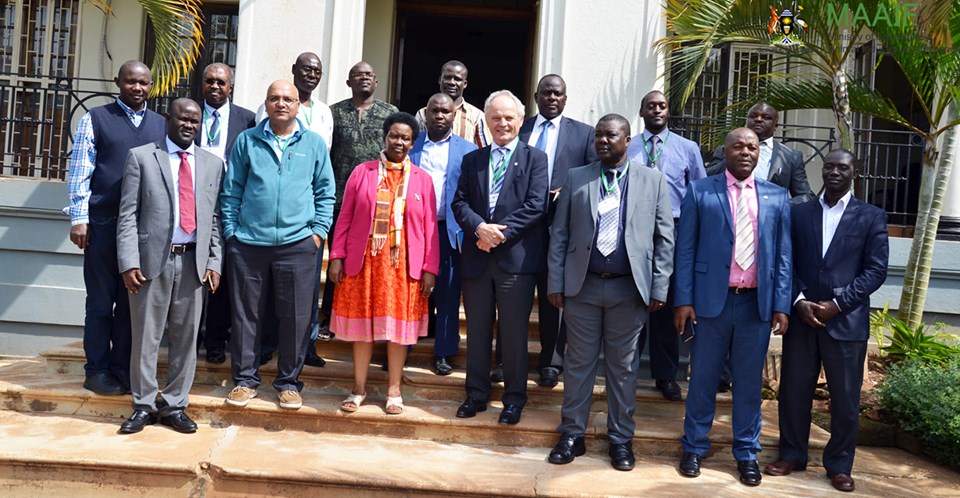
KAMPALA – For increased cross-border knowledge sharing in the livestock industry, a joint meeting between livestock sub-sector experts chaired by Hon. Joy Kabatsi, the State Minister for Animal Industry has kick-started between Kenya and Uganda.
This partnership with Kenya, which will also enhance traceability of livestock in the region will be led by the International Livestock Research Institute (Based in Nairobi) and the Ministry of Agriculture Animal Industry and Fisheries (Uganda) through livestock sub-sector Departments and Agencies including the National Animal Genetic Resources Centre and Databank (NAGRC&DB).
The International Livestock Research Institute (ILRI) is one of 15 CGIAR research centres and is the only centre dedicated entirely to animal agriculture research for the developing world. ILRI is co-hosted by Kenya and Ethiopia, and also has regional or country offices in 14 other locations in Africa, South and South-East Asia.
Drawn from some 40 nationalities, ILRI has a workforce of about 630 staff globally and operates on an annual budget of just over US$80M. The institute works through extensive partnership arrangements with research and development institutions in both the developed and developing parts of the world.
ILRI’s research for development agenda covers a range of areas from laboratory-based biosciences to field-based research. Topics include animal productivity (health, genetics and feeds), food safety and zoonoses, livestock and the environment and policies, institutions and livelihoods. Capacity development is an important part of the institute’s mandate and cuts across all its research and development areas.
The Mazingira (Swahili for ‘environment’) Centre at ILRI’s Nairobi campus aims to be the nucleus for environmental research and education in Africa, providing state-of-the-art facilities, analytical equipment and methodological approaches.
The focus is on quantifying the environmental footprint of livestock productions systems in sub-Saharan Africa by measuring greenhouse gas emissions from livestock and other agricultural production systems. A specific focus is given to methane emissions from ruminants, methane and nitrous oxide emissions from manure as well as soils.
The centre also aims at documenting land use change dynamics as driven by the increased demand for livestock products and to develop region-specific strategies for decreasing the environmental impact of livestock production. ILRI is also the co-founder, with the AU-NEPAD, of the Biosciences Eastern and Central Africa (BecA-ILRI Hub) on its Nairobi campus where world-class facilities for biotechnology research are in use by ILRI, other international centres and many national partners.
The platform increases access to the laboratories for African and international scientists conducting research on African agricultural challenges. Also to be found on the campus are nodes of other CGIAR centres, these include the International Potato Centre (CIP), the International Institute of Tropical Agriculture (IITA), the International Rice Research Institute (IRRI) and the International Maize and Wheat Improvement Centre (CIMMYT).





